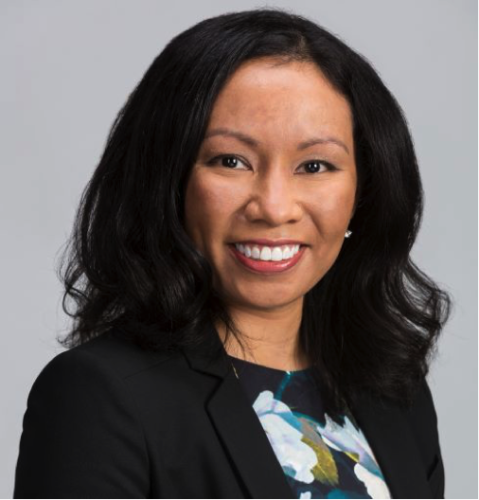 Corie L. Cobb received her Ph.D. from UC Berkeley’s Mechanical Engineering Department in 2008 with dissertation title – “Case-based Reasoning for MEMS (Microelectromechanical Systems) Design Synthesis” – with Prof. Alice M. Agogino as her advisor. Within her doctoral program she majored in design and minored in information systems and materials science. These are rigorous depth areas that require a solid foundation in mathematics.
Corie L. Cobb received her Ph.D. from UC Berkeley’s Mechanical Engineering Department in 2008 with dissertation title – “Case-based Reasoning for MEMS (Microelectromechanical Systems) Design Synthesis” – with Prof. Alice M. Agogino as her advisor. Within her doctoral program she majored in design and minored in information systems and materials science. These are rigorous depth areas that require a solid foundation in mathematics.
During last 1.5 years of her graduate studies, Prof. Cobb led a team of researchers on a longitudinal educational assessment the new product development class taught by her advisor Prof. Alice Agogino and co-instructor Dr. Sara Beckman. She co-authored a journal paper on longitudinal assessment of the course to better understand the design lessons and new product development methods alumni from the course value in industry. This work was published in 2016 – C.L. Cobb, J. Hey, A.M. Agogino, S.L. Beckman, and S. Kim, “What Alumni Value from New Product Development Education: A Longitudinal Study,” Advances in Engineering Education, pp. 1-37, 2016.
While in graduate school, Prof. Cobb’s initial career goal was to work in industry. She wanted to create tangible products that had an immediate impact on the world. Prof. Cobb was highly innovative and excelled in industry with 18 issued US patents and 6 pending US patent applications. She also raised nearly $8.5M of research funding. In industry, where inventorship is highly valued, Prof. Cobb was greatly productive, and found ways to both patent and publish her research work. She has a career path that is not typical of a professor. Five years ago, she began thinking of ways she could have a broader impact in the clean energy and additive manufacturing fields. Corie Cobb chose to leave a solid job in industry where she was highly valued, so she could advance her research vision at the University of Washington in her new role as a Tenure Track Associate Professor.
During her 3.5+ years at the University of Washington, she received the prestigious DARPA Young Faculty Award and the 3M Non-tenured Faculty award. She has received these two prestigious awards which is outstanding, and she has raised over $1M as a PI at the University of Washington. Her teaching scores are phenomenal. She has received scores of 4.6-4.9 for her teaching effectiveness. While some new faculty may require time to develop a strong teaching record, Prof. Cobb received these high scores when she started at the University of Washington, and she has continued to maintain them.
Prof. Cobb is revolutionizing the clean energy and additive manufacturing landscape by taking on a new fundamental approach to design and manufacturing. She leverages artificial intelligence to develop new material and systems heuristics, creating an automated design process to guide her field towards new discoveries in energy storage architectures and additive manufacturing processes. Her work in industry has already significantly improved the efficiency of solar cells and batteries and these products are in use at real companies – she is now poised to impact and revolutionize clean energy and additive manufacturing through new innovations in materials and mechanical engineering. Prof. Cobb is a Mechanical Engineer by degree, but her research has always been highly interdisciplinary, crossing into Computer Science, Information, Materials Science, and Electrical Engineering. Prof. Cobb has authored or co-authored 15 high quality peer-reviewed papers (six peer-reviewed conference papers, eight peer-reviewed journal papers, one peer-reviewed book chapter and four editorial-reviewed conference or magazine papers).
Prof. Cobb has also been very active in community service. At both Stanford University and UC Berkeley, she was active with the black graduate science and engineering student organizations. She was also a student delegate for the Mechanical Engineering Department to the Graduate Assembly for almost two years and was a member of their Diversity Committee. She has shown leadership in activities in the College of Engineering’s Center for Underrepresented Engineering Students (CUES) and I remember in 2008 before she graduated from Berkeley, she was hand selected to be one of a small number of advanced Berkeley graduate students on campus who spoke to NSF’s program director regarding broadening programs for women and underrepresented minorities. At her prior employer Xerox PARC, she continued to be an active participant in diversity recruiting and hiring, advising mangers and human resources on best practices for recruiting and retaining a diverse science and engineering work force.
Prof. Cobb has an exceptional academic and professional record. She is a highly creative researcher who excels in computation, intelligent systems, and experimental work. She has become an impactful leader in her research field. Prof. Cobb has demonstrated creativity, commitment, innovative thinking, and team-work throughout her time as a researcher. She is an ideal professor with excellence in all of its dimensions in teaching, research, mentoring, outreach and service.


 Grace X. Gu
Grace X. Gu